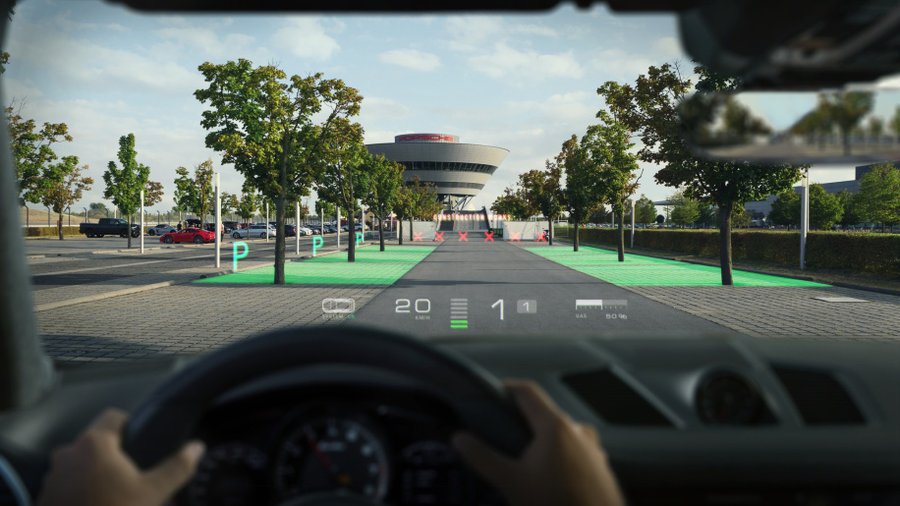Porsche, Hyundai invest in WayRay augmented reality for road and track

A number of incipient future technologies such as solid state batteries, Level 5 autonomy, and augmented reality simply await the breakthrough moments that will enable mass-market scalability. The last one of those took another step closer to its breakthrough with news of Porsche leading an $80 million Series C investment round for six-year-old Switzerland-based AR startup WayRay. The German carmaker was joined in the augmented reality play by Hyundai, JVCKENWOOD, China Merchants Capital, a group of sovereign wealth funds, and Alibaba Group, a previous investor.
Porsche tied up with WayRay earlier this year on an AR project during Startup Autobahn, a European initiative devoted to automotive innovation. Sounds like the cooperation proved fruitful, with Porsche saying, "Their innovative ideas and products have great potential. We are convinced that on this basis we'll be able to offer our clients customized Porsche solutions," and putting its money where its windshield is.
Blue chips have apparently backed the company because its AR solution is better than others out there, being smaller than competitor units, adaptable to any make and model, and usable over a much wider field of view, easing the strain on a driver's eyes. Hyundai said it wants to use the technology in its cars, and for applications beyond vehicles like an entire AR ecosystem incorporating smart buildings and smart cities.
On the mundane safety side, the AR system could highlight crosswalks, warning signs, parking spots, construction zones, and provide more precise navigation directions all within the driver's natural line-of-sight. Porsche, unsurprisingly, is thinking about the performance aspects and widening the suite of digital services it can offer to customers. A short video and a series of graphics showed how a potential WayRay system could enhance the driving experience, especially on track. The Porsche driver not only gets an image of the ideal driving line laid down ahead of him, he could get prompts for braking and turning, a "ghost" car acting as rabbit to show him where he gains and loses time, lap times, track position, and more.
As much as this kind of feature makes sense for the Porsche brand and the new Cayman GT4 owner working to hook up his personal best at his local track, WayRay's possibilities seem like an even better boon for hypercar buyers. This would get the Bugatti Divo or Aston Martin Valkyrie AMR Pro buyer much closer to his car's limits than he'd otherwise get before investing years in paid instruction and practice laps. Whenever this AR hits mass adoption, it might spell the end of Nürburgring crash compilation videos, though.
WayRay, with more than 250 employees in four countries, does 80 percent of its work in-house, from R&D to prototyping, including the development of polymers for the windshield display and new laser technology. In 2015 we heard about WayRay when it was called Navion and WayRay was the name of the aftermarket augmented reality product Navion was working on. In addition to the name change, the startup has refocused on OEM equipment instead of aftermarket solutions, the CEO saying automakers are lining up to integrate the technology, and that's where the money is.
The firm says it will invest its cash infusion in more R&D, to build a factory in Germany to manufacture finished units, and expand its AR offerings into nascent automotive sectors like autonomous vehicles, as well as fields beyond automotive such as smart homes and construction. Heads up displays for cars alone are projected to be worth $1 billion by 2023.
Related News


